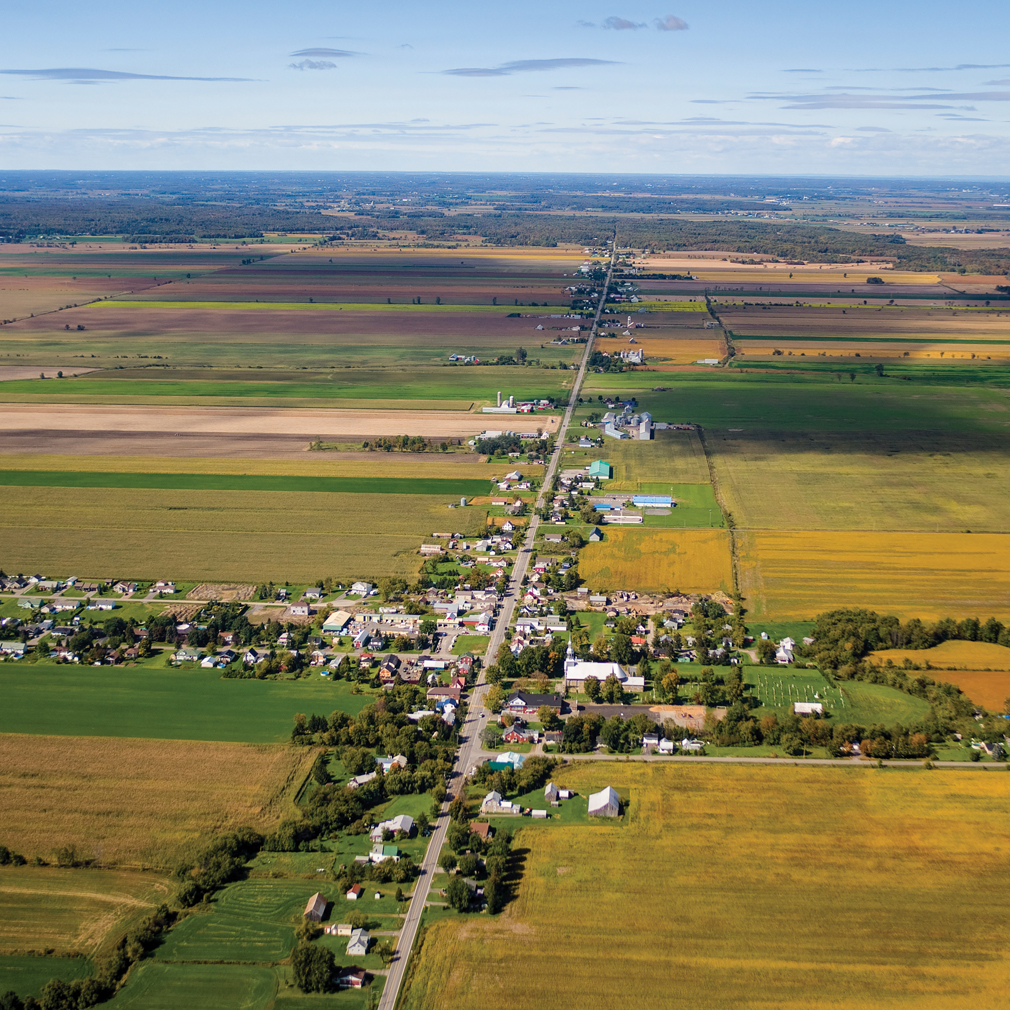INRS offers Quebec significant leverage with its new centre dedicated to the unique challenges of rural areas and communities.

The centre will host interdisciplinary study programs to train experts capable of successfully tackling the challenges of rural environments in innovative ways. Multiple fundamental issues—such as access to local services, education, digital connectivity, ecological transition, and communities—will be at the centre of the work done by major players within the sector’s existing ecosystem.
Thanks to $2 million in annual funding granted in June 2024 by the Quebec government, INRS is now able to confirm the creation of its future centre, and to look forward with optimism to the research, training, and collaboration opportunities it will bring.
In early October 2023, INRS made public the opportunity case prepared by over 400 participants from the sector, and submitted it to the Ministère de l’Enseignement supérieur to support the relevance of its project.
Find out more about this extensive consultation process
Scientific orientations aligned with the rural challenges of today and tomorrow
The need for rural sustainability was clarified through an ambitious consultation exercise that reiterated the relevance of the new Ruralités Durables Research Centre and set out key priority issues.
- Interconnectedness of systems, networks, and communities
- Integrated management of services, activities, and land
- Multifunctional environments, land, and activities
Four scientific focuses will address the future centre’s priority issues.
- Sustainable resource use and management
- Innovative industrial practices in rural areas
- Health, safety, and well-being in rural areas
- Vitality of rural communities and social innovation

A cross-sectoral approach
Combining social, health, and natural sciences and engineering is crucial. That is the essence of INRS. The new centre’s scientific program will be built on the strength of its interdisciplinary network.
Exciting, challenging new courses to complement the current offer
Training is at the core of INRS’s mission and activities. Thanks to the consultations carried out as part of the project team’s mandate, work in the new centre will be oriented towards four objectives.
1. With INRS’s regular programs, train scientists to be experts on rural issues.
2. Revitalize the concept of rural studies by developing new cross-sectoral programs.
3. Contribute to the enhancement of regional and territorial development programs offered in the Université du Québec
4. Establish Quebec’s first scientific advisory programs to meet the needs of municipalities and other local and regional organizations.


An ambitious new centre taking action to ensure its long-term success
To ensure the long-term viability of the new centre while maximizing its scientific and socioeconomic benefits, INRS would like to:
1. Hire, over a five-year period, experienced and qualified teaching staff entirely dedicated to these issues;
2. Attract and welcome members of the student body with diverse backgrounds to the centre;
3. Guarantee the faculty and the student body quality services that promote access, success, and inclusive excellence, right from the opening of the centre;
4. Create a lively, unifying space that is both a living and a research environment.
A new centre firmly rooted in Charlevoix
The Charlevoix region boasts a number of advantages that make it a natural choice to conduct research on rural sustainability, not to mention a fulfilling environment for INRS’s future scientific community.


The centre aims to foster a successful student experience within Baie-Saint-Paul’s inspiring setting, and develop a regional vision by collaborating with La Malbaie to carry out projects.
Regional ties are a key part of the process to choose the centre’s location. While INRS is recommending Maison Mère in the heart of Baie-Saint-Paul as the focus of the next phase of analysis for the future centre’s location, the institute hopes that its presence in Charlevoix will have a positive impact on the entire region. INRS remains actively involved in the development of strategic and capacity-building projects with key players in the La Malbaie area.

